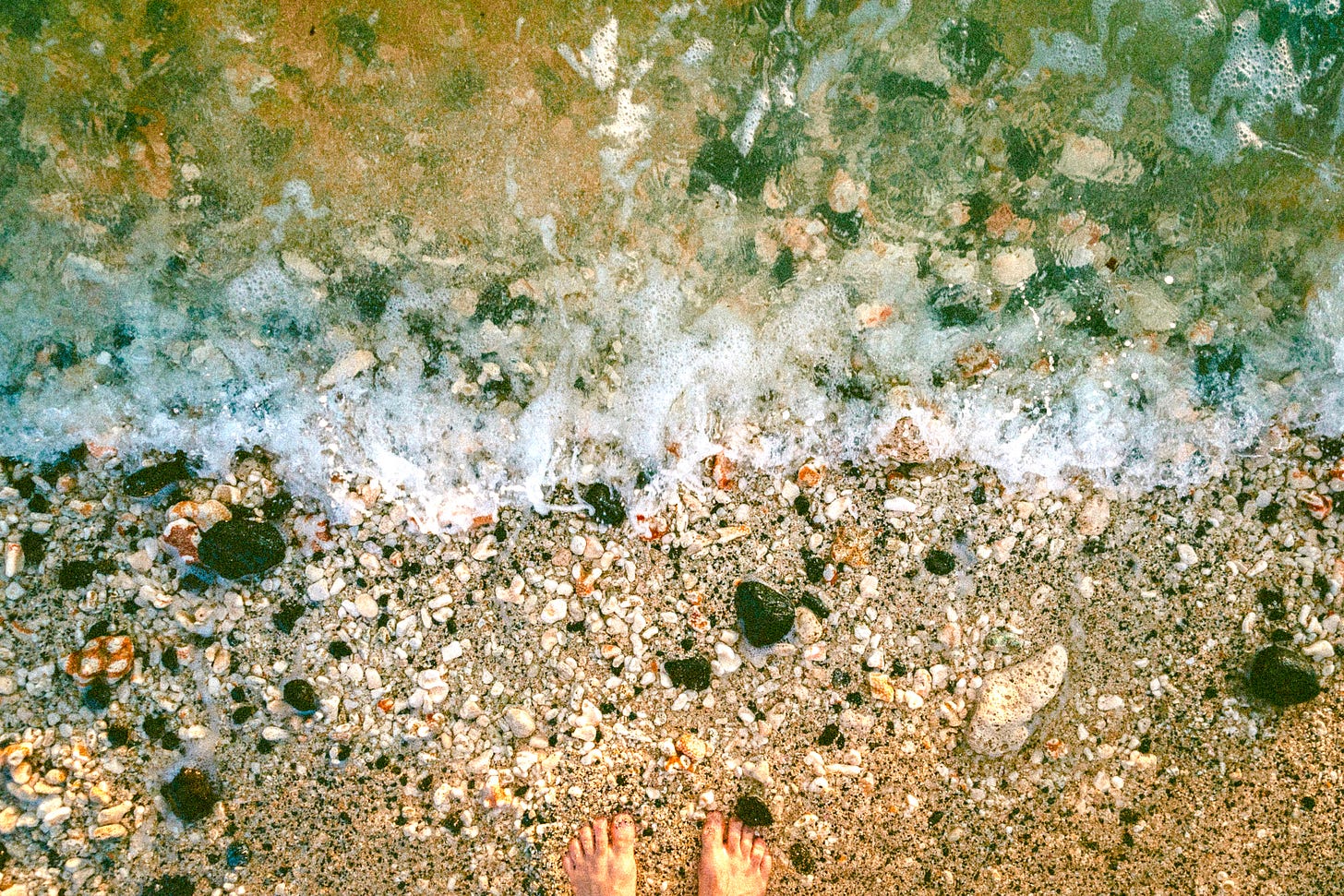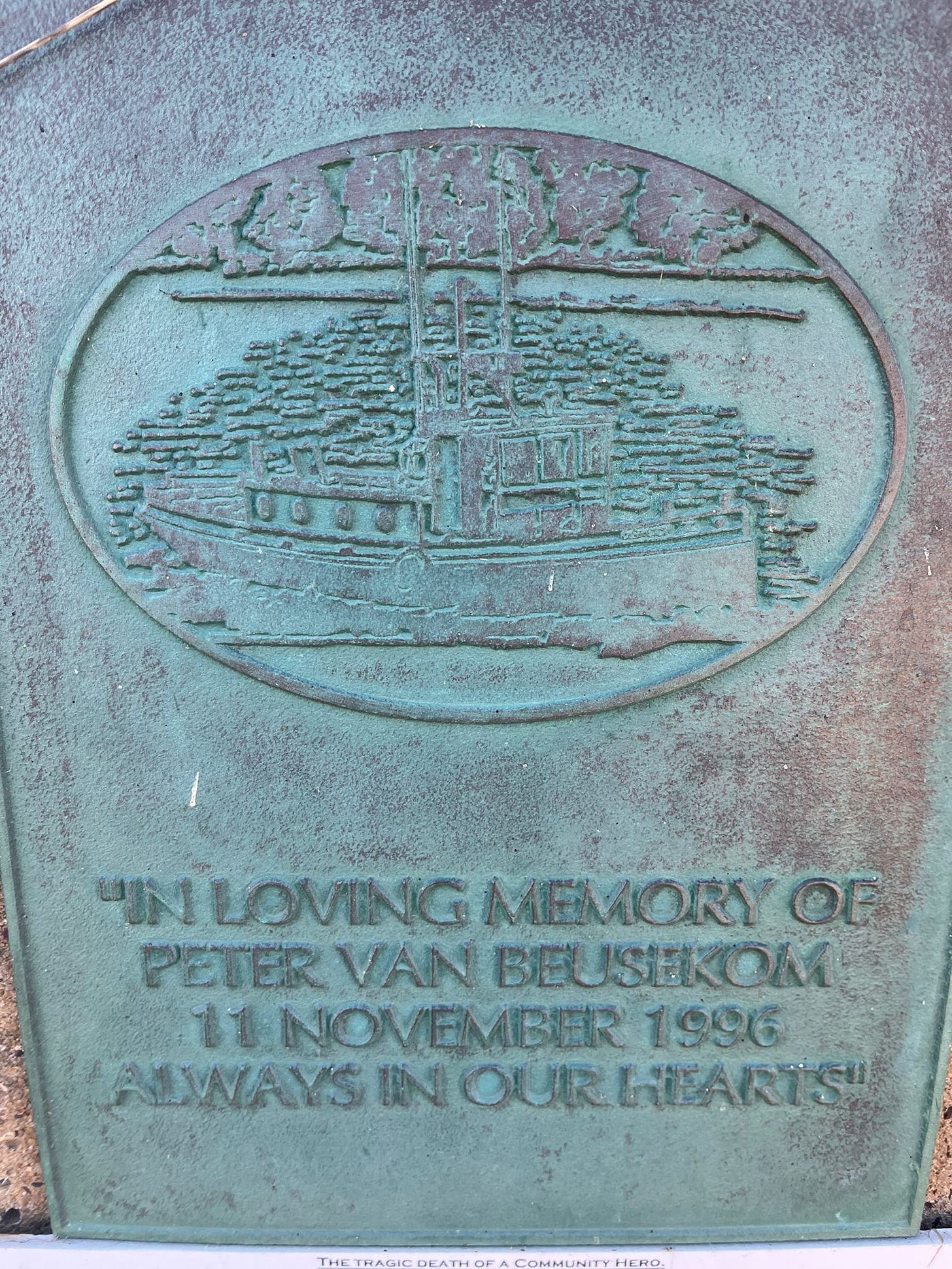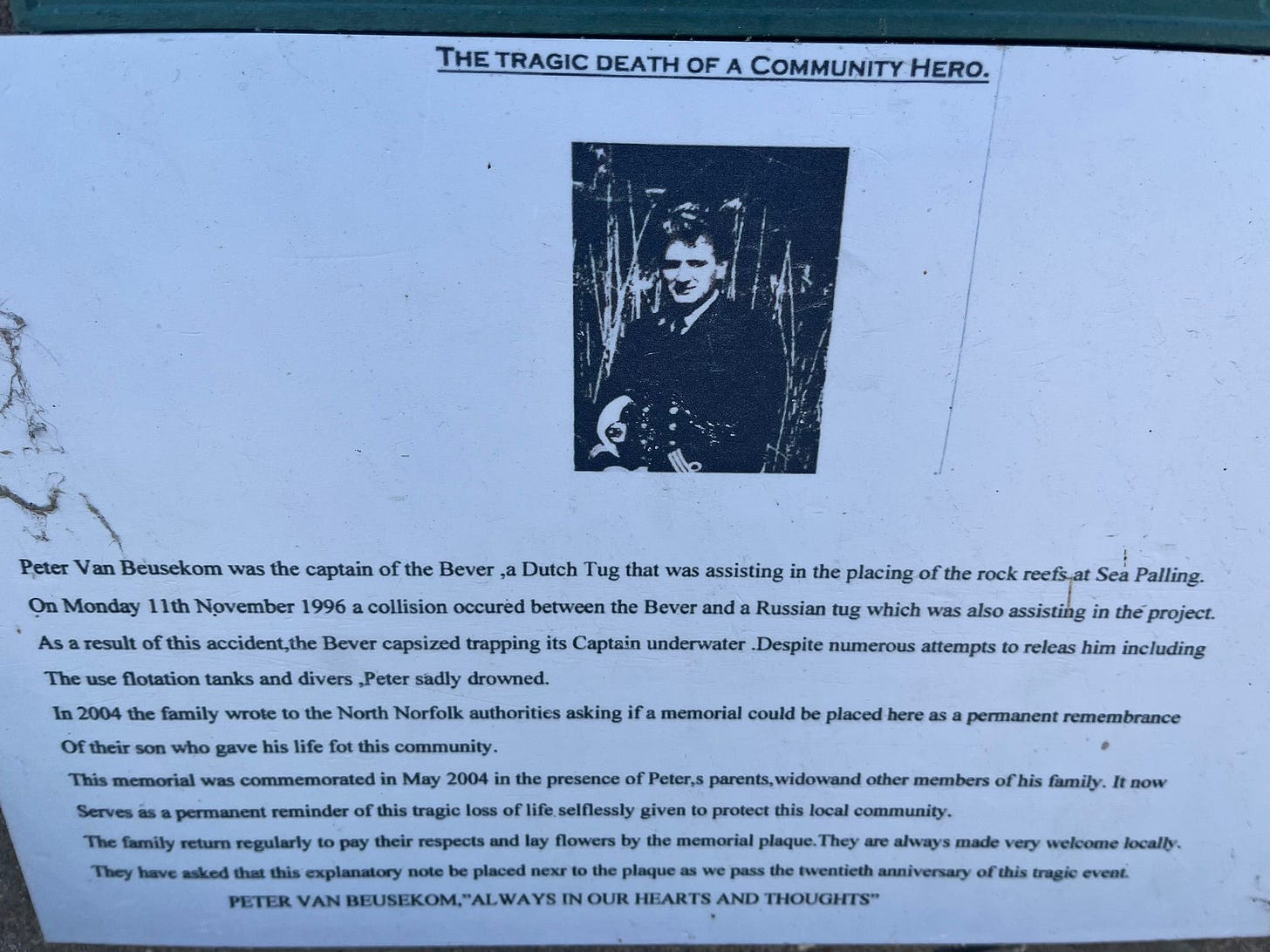I sat on a beach this week and marvelled at the way humans love each other.
Before I begin, I need to name the problem with that L word - the weight its four letters are being asked to bear and the underwhelming way it therefore often lands. See how it slides past your mind without getting a lot of purchase, somehow both too full and too empty to act as an effective signifier. When I interviewed one of my favourite writers, Francis Spufford, I asked if he could help find an alternative. In his book Unapologetic (which I adore) he successfully rebrands the word sin - entangled with so many unhelpful associations - as The Human Propensity to Fuck Things Up (or HPTFTU). He declined to do the same for love, indicating that the project was too large.
That conversation has kept coming back to me as I’ve been writing this post in my head all week. I have found myself trying to find ways around the word, to avoid writing (again) about something as straightforwardly on-the-nose as human love. I’m formed enough by the western intellectual tradition to associate intelligence with originality, and large parts of me still want you to think I’m clever. Writing about love is not, in most of the circles the tender insecure parts of me still aspire to join, the way to seem either interesting or impressive.
Unfortunately for my teenage self, part of my soul work is learning to pursue the themes that make me neither interesting or impressive, anyway. None of the things I want to define my life are original. The upside down logic of wisdom, I am discovering, is that life’s real treasures have terrible branding. They are neither novel nor sexy nor shiny. No matter how cleverly I write this headline I am not going to make this post into clickbait (5 things you are doing wrong in love! 7 simple hacks to exquisite intimacy!).
When I was first learning to pray after an ecstatic encounter with the divine, frustrated by the lack of a voice from the sky, someone said to me “God whispers so you will come close”. It seems to me now that life also whispers, and the whisper is an invitation. Precisely the things that seem unoriginal and overdone, are the things that sustained attention can make new, and which can themselves renew me. Also, there just isn’t a way around the L word. It’s some kind of linguistic ground zero. Try and think of alternatives. Care, yes, affection, commitment, connection. All good for shaking up a sentence. But not the same thing, quite, as love. I’ve concluded its a word which can fight it’s own battles.
That is a longer preamble than I intended. Let’s try again
I sat on a Norfolk beach this week and marvelled at the ordinary, profound ways humans love each other. In between dodging the flying sand from my children’s spades and reading a detective novel, I watched a man in a wheelchair being wheeled across the wet sand by two women. It seemed a mad thing to attempt - all of them in their sixties or seventies, the womens’ backs bent double as they pushed, leaving deep footprints and double tracks behind them. I only spotted them as they arrived at the shoreline, and jumped up to offer help, but something about their posture stopped me. The man in the wheelchair was clearly suffering from a serious degenerative disease. His body bent over on itself and he held his arms and hands stiffly and close to his chest. Without stopping to rest one of the women knelt down to remove his shoes and roll up his trouser legs and the two of them heaved him to a standing position. For a few seconds they supported him there, one under each arm, finding their balance. Then they shuffled a few steps forward, the three of them, until the man’s naked feet were in the shallows, the waves foaming around his fragile ankles.
I have rarely seen anything so beautiful. The scene appeared as a devotional painting, a luminous pieta against the stormy grey sky. The man’s body stretched out, cruciform, held by the steely determination of three people, pulsing with a combination of tenderness and recklessness. In particular, the way the man’s posture straightened fractionally as his skin make contact with the water - it floored me. I was too far away to see his face, hear his reaction, but I didn’t need to. As I tried not to stare, not to intrude, I cried.
Afterwards, as I walked up and over the concrete sea defences in search of a restorative cup of tea, I came across these plaques.
They commemorate the death of a Dutch sailor who came to Norfolk to help build the rock sea walls which now protect the tiny community of Sea Palling from fatal floods. His ship overturned during the dangerous work and he drowned, despite desperate rescue attempts. The final line of the poster under the plaque seemed unbearably poignant even in its plain speech: “ [The family] have asked that this explanatory note be placed next to the plaque as we pass the twentieth anniversary of this tragic event”. Do not forget him, they are saying. We have not.
It’s easy to romanticise the love between family and friends, but anyone who has recently been on a group holiday knows not to. I’m sure the three figures in the waves annoy and hurt each other as much as anyone. Peter the brave sailor and much mourned son was also, almost certainly, sometimes grumpy and selfish and shouted at his children. But that day on the beach those things seemed so insubstantial. The triptych in the shallows and the plaque on the wall blazed with a white hot power, a deep magic that glimmers underneath the cruelty and bitterness and dislocation that are also true facts about this world. I am convinced this power is always there, gleaming quietly through, whispering, if we will only listen and look. Many waters cannot quench love, nor can floods drown it, the Hebrew scriptures tell me. As Francis Spufford is able to say, “Far more can be mended than we know”. Until it is, the “best that can be done is to love for the sake of it, and to keep sorrow company.”
Header image by Jacob Owens at Unsplash, edited by me.
.








Yet again a beautiful, thoughtful and thought provoking piece of writing Elizabeth. You have a gift of putting into words the mystery that is our ordinary sacred life. Thank you.
I just finished listening to this on my way home from work and I was so completely mesmerised by your storytelling. Absolutely gorgeous work, so glad to have found you!